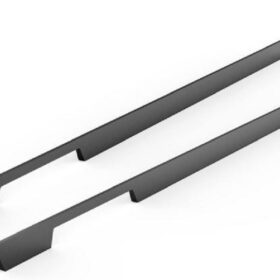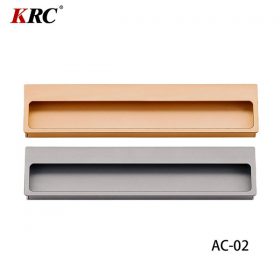Eco-Friendly Choices- Sustainable Materials for Furniture Handles
In the realm of furniture design, where style meets functionality, the choice of materials for furniture handles plays a crucial role. In recent years, the demand for eco-friendly and sustainable options has surged, driven by a growing awareness of environmental conservation and the desire to make responsible choices. This article explores the diverse range of sustainable materials available for furniture handles, empowering readers to make informed decisions that align with their environmental values.
Natural Materials
Nature provides an abundance of raw materials that can be transformed into beautiful and durable furniture handles. Wood, for instance, offers a timeless elegance and warmth. Sustainable wood options include bamboo, a rapidly renewable resource, and reclaimed wood, which reduces waste and preserves forests. Cork, derived from the bark of cork oak trees, is lightweight, water-resistant, and naturally antimicrobial. Rattan and bamboo fibers can be woven into intricate patterns, creating unique and versatile handles.
Recycled Materials
Recycling plays a vital role in reducing environmental impact. A wide range of materials can be recycled into furniture handles, including aluminum, steel, and plastic. Recycled aluminum is strong, lightweight, and corrosion-resistant, making it an ideal choice for contemporary designs. Recycled steel offers a durable and industrial aesthetic, while recycled plastic is a versatile and cost-effective material that can be molded into various shapes and colors.
Biodegradable Materials
Biodegradable materials offer a sustainable alternative to traditional plastics. Paper composite, made from recycled paper fibers, is lightweight, durable, and can be customized with various colors and textures. Bioplastics, derived from plant-based materials such as corn starch or cellulose, are biodegradable and compostable, reducing waste and greenhouse gas emissions.
Sustainable Practices
Beyond the choice of materials, it is equally important to consider sustainable practices in the production of furniture handles. Look for manufacturers who use environmentally friendly manufacturing processes, such as reducing energy consumption, minimizing waste, and using non-toxic finishes. Choose suppliers that adhere to ethical sourcing practices and ensure fair labor conditions.
Benefits of Sustainable Furniture Handles
Choosing sustainable materials for furniture handles offers numerous benefits, both environmental and personal. By reducing the use of harmful chemicals and fossil fuels, you contribute to the protection of our planet. Sustainable materials are often more durable and long-lasting, resulting in fewer replacements and waste. Additionally, eco-friendly furniture handles enhance the aesthetic appeal of your home, creating a healthier and more sustainable living environment.
In conclusion, “Eco-Friendly Choices: Sustainable Materials for Furniture Handles” provides a comprehensive overview of the available options in the market. By embracing sustainable materials and practices, you can make a positive impact on the environment while enhancing the style and functionality of your furniture. Choose wisely and contribute to a greener and more responsible future.
-
2024-09-14Exploring the Different Types of Modern Closet Door Pulls and Their Applications
-
2024-09-14How Cabinet Door Pull Handles Support High-Traffic Areas
-
2024-09-06Cost-Benefit Analysis of Investing in High-Quality Long Wardrobe Door Handles
-
2024-09-04How Flat Cabinet Handles Enhance Modern Interior Design
-
2024-11-29Top Trends in Modern Kitchen Cabinet Pulls for 2024
-
2024-11-28The Ultimate Guide to Modern Kitchen Cabinet Pulls- Materials, Styles, and Tips
-
2024-11-27Elevate Your Kitchen Design with These Must-Have Modern Cabinet Pulls
-
2024-11-26Sleek and Stylish- The Best Modern Kitchen Cabinet Pulls for a Contemporary Look






